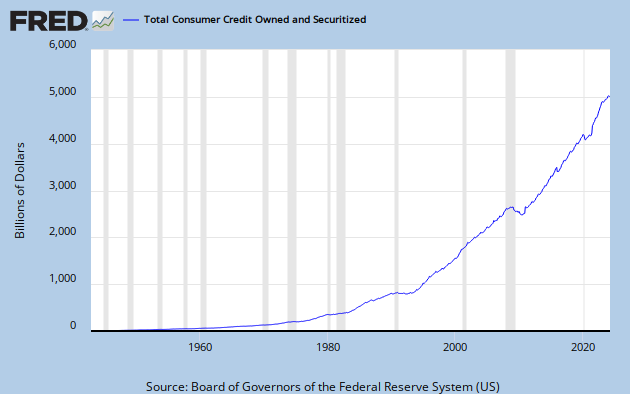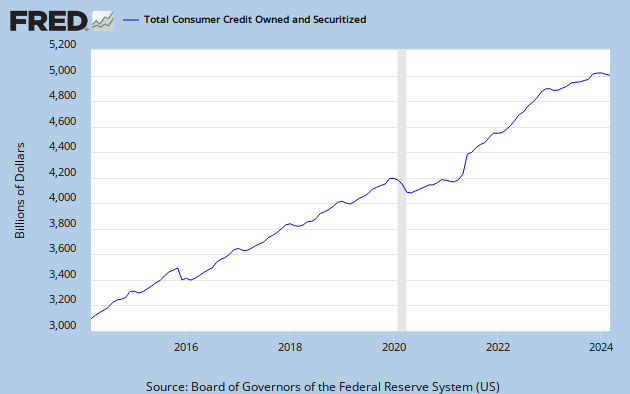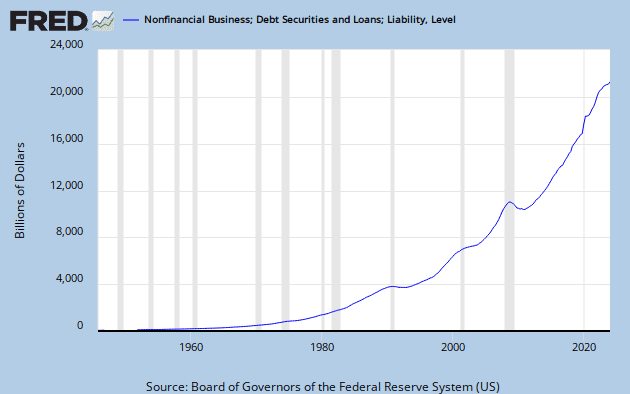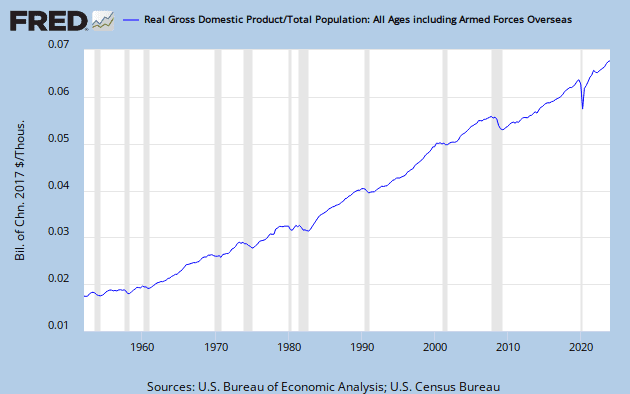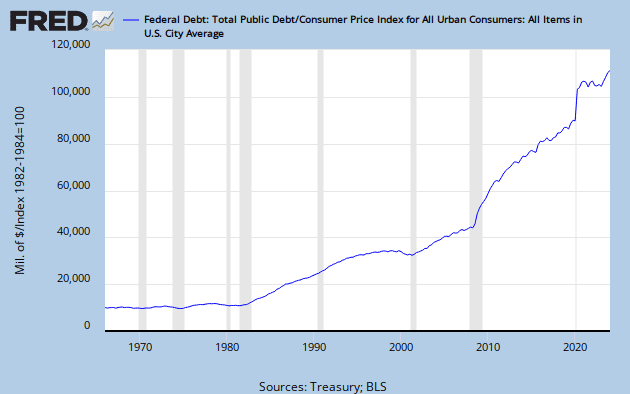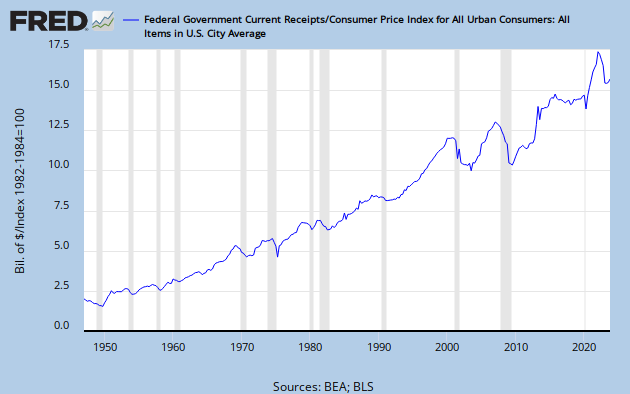To start, I'm not a "lib". *I simply present facts and fundamental drawn from how the money supply functions. *If, in fact, they fail to support your own crap, that is because your a moron.
I have seen no demonstrated or deduced arguement that the $17 T debt is good or bad. *It is simply an accounting on the national books. *For every dollar of government debt, there is an equivalent dollar of private savings. *Additionally, the money supply exists in dollar for dollar balance with some matching debt. *So the question to be answered by you is, if not the government, then who should carry the debt? *Households? *Businesses? *some mix?
To say something is good or bad requires evidence. *So what is your evidence? *Or are you just gonna go with the magical "cuz I think so"?
Many would answer it's bad because if a busines or individual had the same proportion of debt to revenue, they would be in a bad place financially. A cycle like that for a private business or person is not sustainable. So the question back at you is why is it okay for a government to have that kind of debt, but not an individual or a business? To conclude it's not bad, as you seem to be, requires a major presumption and suspension of logic. It poses some really big questions. Like if the amount of debt we carry, no matter how dispratortionate to our revenue, doesn't matter, why do we have a budget? *
To answer your other questions, the government already does not carry the debt. The government doesn't have any of its own money. The government gets its money predominantly from the taxpayers. It alread is the tax payers debt, i.e. your households and businesses. THAT is why it is bad. Because they are the ones on the hook for it. It's bad because it is the result of expenditures a lot of people didn't ask for. There may be a dollar worth of assets or savings for every dollar of debt, but those are dollars the government would have to confiscate to actually pay it.
You haven't answered the question of where the debt should reside and it is the singularly significant question. *
All you've really presented is "it is bad because my credit card debt is bad for me." *That alone is false generalization.
You haven't addressed the money supply or investment.
You demonstrate the typical propensity for mindless assumptions that so piss me off. *
Nowhere have I said it was good or bad. *I simply don't have any qualifying opinion. *You live in that mentality that if someone doesn't agree with you then they must be disagreeing, that if someone doesn't believe a thing is bad then they summarily must believe it is good. *I said, on the outset, "neither" because the question presents a false choice.
Your mistaken concepts presented are to numerous to adequatly address in detail. *But they come down to a lack of comprehension of how the macro economy and the money supply function.
Home economics is not applicable to the government and the macro economy. *
You subjective pre disposition is demomstrated with the use of the term "confiscate". *
Everything you derive from these are summarily false. *Your main point presents no evidence of "bad". *
"...the government already does not carry the debt. The government doesn't have any of its own money. The government gets its money predominantly from the taxpayers. It alread is the tax payers debt, i.e. your households and businesses. THAT is why it is bad. "
None of that is either correct or even a bad.
As you haven't had the mind to address you're fundamental presumption, it is necessary to infer it.
You are assumimg, due to the misapplication of home economics, that the gov debt somehow magically reduces future consumption. *The avaolability of goods is definitively caused by labor and equipment employed in that production. *Everything produced is consumed. *And everything consumed is produced in current time. *We cannot consume future goods nor occupy future houses.
The taxes that are common among all individuals have no steady state effect on standard of living. The effects that tax rates have are a) temporary impulses when a change occurs or b) the result of income differential.
It isn't "the taxpayer's debt", not in accounting terms nor in actual effect. *The prices of all goods are the result of the amount of money available to be used in purchases. *No price is the result of monies that were never possesed. *Taxes are never in possession of individuals amd therefor not a causal factor on prices.
The reason I ask the simple question of whom should carry that debt load is because it gets to the point that debt isn't summarily bad. *Either govt, business, households, or some mix hold it.
If gov doesn't, someone else does. And if simple "debt is bad" is the arguement, then it is bad for businesses and individuals to hold it. Problem is, it must exist or no money. *So the very question of it being "bad" is, in and of itself, a completely meaningless question.
You can't have it both ways. You can't claim I'm wrong and at the same time claim you don't know enough to give an informed answer to the question as to whether it's good or bad. And Red didn't ask if ALL debt was bad. He asked if the debt we currently have is bad. That would mean taking into account our debt vs. the government's revenue.
Secondly, I'm happy to learn. If someone can make a compelling argument that our debt to revenue is not really problematic, I'm all ears. So explain it to me as best you can; what is it about macro economics and the money supply that make the debt situation the government has uncomparable to a similar situation in a business or individual circumstance.
Next, if you view the question whether it is good or bad is meaningless, then your question whom should it reside with is equally meaningless. It isn't a question of morality. It IS debt that is ultimately going to be mostly the responsibility of the tax payers. As you so aptly pointed out, it's not a moral value question. It just is what it is.
As to my 'assumptions' you really started off on the wrong foot there. None of the economic axioms you chose to pepper your post within in the pathetic attempt to make yourself look smart disprove that our level of debt to revenue is unhealthy. Most are true obviously on our face. None of it changes the fact the if debt exists, someone owes.
Last edited:




